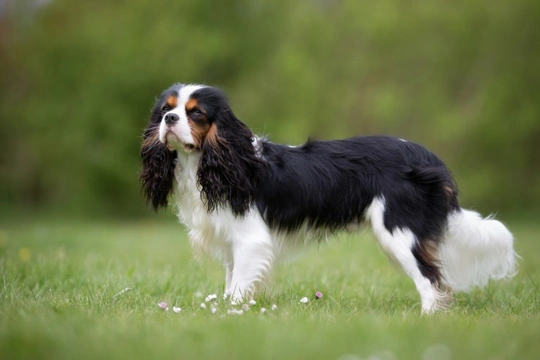
Curly Coat/Dry Eye Testing in Cavalier King Charles Spaniels
Curly Coat/Dry Eye (CC/DE) is a serious inherited condition unique to the Cavalier King Charles spaniel. It combines congenital keratoconjunctivitis sicca (dry eye) with ichthyosiform dermatosis, causing a curly, dry coat and painful, debilitating eye issues. Sadly, affected dogs often face euthanasia to prevent suffering.
Thankfully, this condition can be effectively prevented with DNA testing. Testing prospective breeding dogs for the mutated gene helps breeders make ethical decisions, avoiding the birth of affected puppies and improving breed health.
The UK Kennel Club, along with the British Veterinary Association, maintains a database of CC/DE test results to support breeders and owners in selecting suitable breeding pairs. If you plan to breed from your Cavalier, testing is a crucial step to ensure the welfare of future puppies.
Understanding Curly Coat/Dry Eye Syndrome
While dry eye and curly coat issues can appear separately in various breeds, their combined hereditary form is exclusive to the Cavalier King Charles spaniel. This syndrome is not just a cosmetic problem; dry eye can cause chronic pain, corneal ulcers, and blindness, while the curly coat gene causes skin thickening and infections, especially on paw pads and nose areas.
Who Does CC/DE Affect?
CC/DE impacts Cavalier King Charles spaniels of both genders equally and usually manifests at birth. Affected puppies have noticeably curly, dry coats and soon show signs of eye discomfort due to poor tear production. Though not common in large numbers, the condition is severe and demands careful breeding management to avoid spreading the gene.
Genetics Behind the Condition
CC/DE is an autosomal recessive inherited disorder, meaning a dog must inherit two copies of the mutated gene—one from each parent—to be affected. Dogs with only one copy are carriers; they appear healthy but can pass the gene on. If neither parent carries the gene, the puppies will be clear of the condition.
Testing Process Explained
Testing involves taking a simple cheek swab from the dog, which is then analysed in a genetic laboratory. Results classify dogs as "Clear," "Carrier," or "Affected." This straightforward method is widely accessible, and multiple UK labs are authorised by the Kennel Club for this purpose.
More information about authorised laboratories is available on The Kennel Club's website.
Why DNA Testing Matters for Responsible Breeding
Ethical breeders rely on DNA test results to avoid breeding two carriers, which would risk producing affected puppies. By mating clear dogs or clear to carrier pairs, the incidence of CC/DE can be eradicated over time. This responsible approach protects the health and welfare of future generations of Cavaliers.
Owners interested in breeding should always confirm their dog's status before proceeding. Reputable breeders will openly share test results to promote transparency and trust.
Conclusion: Promoting Healthier Cavaliers
CC/DE syndrome is a devastating condition, but it can be prevented entirely through careful genetic testing and responsible breeding practices. For anyone involved with Cavalier King Charles spaniels, understanding this condition and utilising DNA testing is a vital way to ensure healthier, happier puppies and improve the breed's future.



